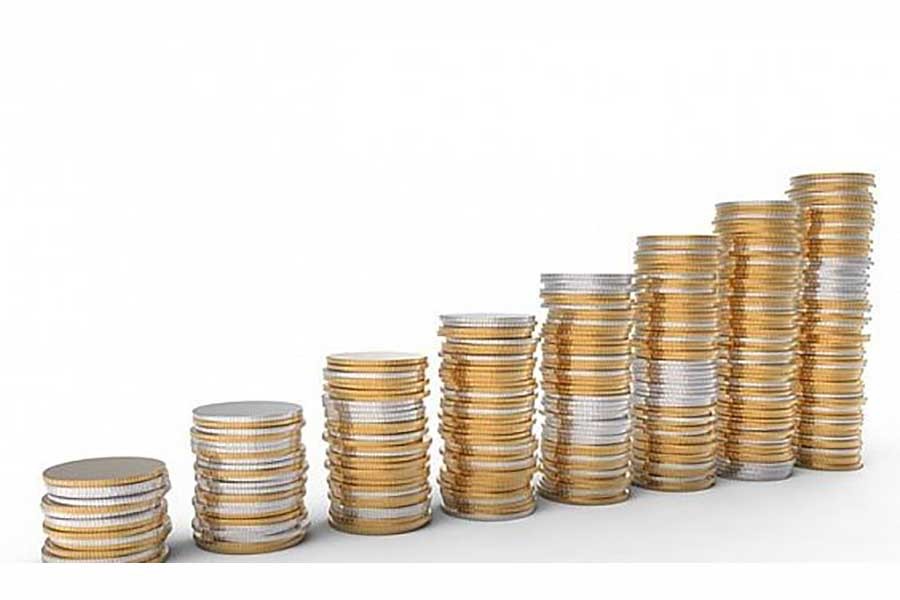Prudent budgetary management requires maintenance of a balance between the incomes and expenditures of a government. But the financial spending by the incumbent government in Bangladesh during the election year appears to be reaching an alarming level, as relevant indicators demonstrate. Observers opine that this is being apparently done to indirectly influence the voters with the upcoming hustings in mind. But the slow rise in the government's revenue income has not been keeping pace with the rapid increase in government expenditure, and this is likely to put the economy under stress in the coming months. Although the country can in no way officially graduate from the status of a least developed country before 2024, the recent lavish celebrations centring around this yet-to-be distant occurrence is also a pointer to this excessively liberal mindset of those in power with regard to public finances.
The main focus of steeply rising public expenditure by the incumbents appears to be development schemes. The MPs are being liberally sanctioned budgetary resources for construction of schools, madrasas, mosques and temples. The administration is also being provided with additional facilities to keep it happy. But the government's revenue income --main supplier of budgetary resources by the National Board of Revenue (NBR) -- has not been very satisfactory. There has already been a deficit of around Taka 150 billion (15,000 crore) against the target in the first seven months of the financial year. The finance ministry is now struggling to make ends meet, and there has already been an excessive rise in interest expenditures on account of savings certificates in recent times.
The government's spending by means of annual development programme (ADP) is also likely to be exorbitant during the election year as additional demands by ministries are being accommodated even after the approval of the revised ADP. Although the current year's ADP of Taka 1640 billion (164,085 crore) has been cut by Taka 64.91 billion (6,491 crore), the contributions of domestic resources have been kept at the original level. Only the foreign contribution of Taka 49 billion (4,950 crore) and allocations for autonomous bodies of Taka 15.41 billion (1,541 crore) have been curtailed. Around 150 development projects have been approved at the 18 meetings of the Executive Committee of National Economic Council (ECNEC) during the first seven and a half months of the fiscal year up to February 2018. Of them, over 80 per cent were new projects, mostly related to construction of roads and communication infrastructure aimed at appeasing the local voters.
Although the MPs used to get special allocations of between Taka 30 million to 50 million (3.0-5.0 crore) for construction of schools, madrasas, mosques and temples during the past eight years, a new technique has been applied this time for the purpose. The education engineering department and the local government engineering department have been empowered to construct 10 new private secondary school buildings, 10 old school buildings and mosques or temples in accordance with the wishes of each MP. These projects have been taken up at a cost of around Taka 160 billion (16,000 crore) mainly to satisfy local parliamentary constituencies. The finance minister has also spoken about bringing around one thousand educational institutions under the MPO scheme at a cost of Taka 40 billion (40,000 crore) through the next budget, which exposes the government's electoral motives.
The government also seeks to make mega projects like the Padma Bridge, metro rail, Payra Seaport and the Chittagong-Cox's Bazaar rail-link more visible to the public during the election year; considerable amounts have therefore been allocated in the ADP for these mega projects.
Previously, the joint secretaries of the government were entitled as privileged officials to receive interest-free loans of Taka 3.0 million (30 lakh) for buying cars as well as monthly allowances of Taka 50 thousand for maintenance of their vehicles and salary of drivers. This facility has now been extended downward to the level of deputy secretaries, numbering 1,552 at the moment. This would entail an additional expenditure of over Taka 5.0 billion (500 crore) per year from the government exchequer. The step is clearly seen as a move to appease the administrative officials during the election year.
Although the government expenditure is constantly on the rise and there is growing pressure on budgetary resources prior to the upcoming election, there has not been much headway in revenue mobilisation. The NBR had been given a target of collecting Taka 2481.90 billion (248,190 crore) during the current financial year, which was 30 per cent higher than the previous fiscal. But the overall growth rate in revenue generation has been only 15.37 per cent or Taka 1480.02 billion (14,802 crore). A serious crisis in budgetary management may be in the offing if the deficit widens further.
Experts opine that the taking up of special projects for MPs and provision of special facilities for the administration in order to serve political ends cannot be justified in terms of ethics and morality. Those who work as contractors in these projects usually operate under political umbrella or patronage and are not generally attentive to their proper implementation. Besides, new projects are being approved without thorough scrutiny and verifications. Many projects cannot be completed by maintaining the desired quality. The project costs are also escalating in many instances, resulting in sheer wastage of money and other resources. On the other hand, there are signs of exerting additional pressure on the common people and the business community for generation of extra revenue by the government. All this leads to unhealthy pressure on the economy. The situation may spin out of control if the government does not exercise utmost caution and prudence in the coming months, especially in the budgetary allocations for the next fiscal year.
Dr. Helal Uddin Ahmed is a former editor of Bangladesh Quarterly. [email protected]


